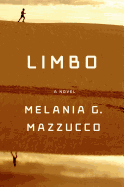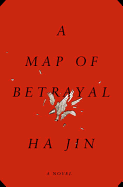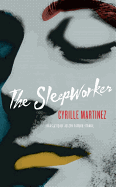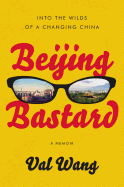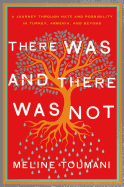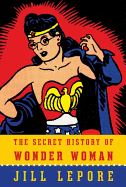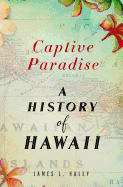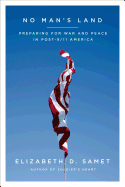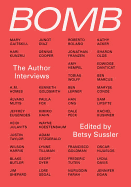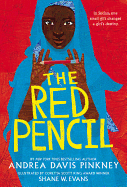 A professor of English at West Point, Elizabeth D. Samet is the author of Soldier's Heart: Reading Literature Through Peace and War at West Point, which was named one of the 100 Notable Books of 2007 by the New York Times. Her essays and reviews have been published in the New York Times Book Review and the New Republic. Her most recent book, No Man's Land: Preparing for War and Peace in Post-9/11 America (reviewed below) is, in part, an attempt to grapple with the mythologies that have spread since 9/11 and reveal the actual experience of soldiers on the ground. [Editor's note: The opinions Samet expresses in this interview are her own and do not necessarily reflect those of the U.S. Military Academy, the Department of the Army, or the Department of Defense.]
A professor of English at West Point, Elizabeth D. Samet is the author of Soldier's Heart: Reading Literature Through Peace and War at West Point, which was named one of the 100 Notable Books of 2007 by the New York Times. Her essays and reviews have been published in the New York Times Book Review and the New Republic. Her most recent book, No Man's Land: Preparing for War and Peace in Post-9/11 America (reviewed below) is, in part, an attempt to grapple with the mythologies that have spread since 9/11 and reveal the actual experience of soldiers on the ground. [Editor's note: The opinions Samet expresses in this interview are her own and do not necessarily reflect those of the U.S. Military Academy, the Department of the Army, or the Department of Defense.]
"No man's land" is the popular name for the area between opposing trenches in World War I. How has the meaning evolved for you?
The World War I centennial loomed as I wrote this book, and the geography of the Western Front preoccupied me. "No man's land" became my governing trope because, vastly different though that war may have been, it worked a profound dislocation in combatants and attentive spectators alike. Dislocation aptly describes the sensation produced today by the vicissitudes of a 13-year campaign, and no man's land thus represents in the book a largely psychological space inhabited by many returning veterans (commuters shuttling back and forth to war); by me, as I imaginatively follow them; and, to a certain extent, by the country as a whole, which has never really come to grips with the violent upheavals that launched the 21st century.
Soldier's Heart was about your experience teaching literature at West Point. What has changed?
Many of the cadets who once sat in my classes are now army officers who have served multiple tours in Iraq and Afghanistan. Soldier's Heart chronicled the story of the transition from peace to war and captured my feelings about all the changes worked by war on people and institutions. However, the clarity of the narrative arc from peace to war began to dissolve as our military engagements wore on. I began to feel, as the title of No Man's Land is meant to suggest, that we are neither here nor there, neither fully at war nor fully at peace, but somewhere in between.
The letters from former students are a remarkable addition to the book.
I consider my ongoing correspondence with former students the least anticipated and most wonderful aspect of my experience as a teacher. The e-mails and letters I included were those that illuminated the experiences of war--and the challenges of coming home--in all their inherent ambiguity. They seem to me to express the sensibility of John Keats's chameleon poet: a capacity to contemplate the light and dark of human experience both together.
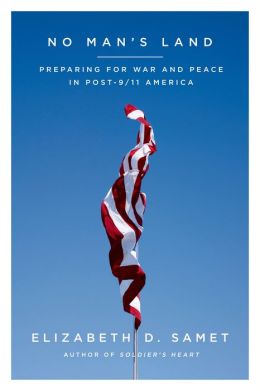 One of the book's underlying themes is the United States' poor care of veterans. Is sentimentality part of the problem? What needs to change?
One of the book's underlying themes is the United States' poor care of veterans. Is sentimentality part of the problem? What needs to change?
I think we are infatuated as a nation with sentimental celebrations of heroism and sacrifice. But once those celebrations--at ballparks or in political speeches--have ended, we become distracted rather quickly. Long-term solutions to the complex challenges of fighting wars and of caring for returning veterans aren't generated by sentiment alone. I'm reminded of Abraham Lincoln's warning about the role of passion in the political process: "Passion has helped us, but can do so no more," he noted in 1838. The passion that worked in the American Revolution "will in future be our enemy. Reason, cold, calculating, unimpassioned reason, must furnish all the materials for our future support and defence." I think we would do well to remember Lincoln's admonition. Life after war--for veterans and for the rest of us--can be a messy business that carries on long after the initial excitement of homecoming dissipates. Our reluctance to grapple with what we owe to veterans beyond a rote expression of thanks or a fleeting celebration is nothing new, but it is something we ought to have learned how to overcome after all these years and all these wars.
No Man's Land seems very much in the tradition of Paul Fussell's The Great War and Modern Memory and Jay Winter's Sites of Memory, Sites of Mourning. What books have influenced you?
Reading does perhaps its most important work by awakening the imagination through discomfort, incongruity and contradiction. Among those books about what we might call the culture of war that I've found most valuable are Plutarch's Lives, Edmund Blunden's Undertones of War, Studs Terkel's The Good War, A.J. Liebling's World War II Writings, Joan Didion's The White Album, Tobias Wolff's In Pharaoh's Army, David Finkel's The Good Soldiers and Rory Stewart's The Places in Between.
How do Shakespeare's works help veterans--and those who interact with them--understand their experiences?
I believe Shakespeare speaks to veterans today for the same reason he has spoken to so many readers--soldier and civilian--in the centuries since his death. Shakespeare strikes a chord because he so honestly explores fundamental states of mind, most signally perhaps the state of not knowing one's mind and of having to muddle through with imperfect information, contradictory emotions or, as the deposed Richard II comes to understand in his prison cell, the confusion of "still-breeding thoughts." An account of life and thought as dynamic--serially revised rather than static and conclusive--is what Shakespeare has to offer us.
You share stories of grief in your Coda over students you've lost to combat. How much did personal loss shape this book?
The Coda's elegiac mood certainly derives from personal loss, but the book is also meant to record a larger communal one--a loss of connection on the part of America with the act of making war and with the women and men who fight our wars. That loss of connection has real repercussions for decision makers and private citizens as we imagine the potential uses of force we might exercise in the coming years.
What would you most like readers to understand about American combat vets?
I think it is vital in the era of the all-volunteer force to remind ourselves repeatedly that members of the military are, for all of the seeming remoteness of their sphere of action, possessed of the same aspirations, doubts, ambivalences and inconsistencies that mark the rest of us out as human: strength and vulnerability, generosity and selfishness, sympathy and coldness, attachment and fickleness. Recognizing and exercising that fundamental kinship with veterans, rather than holding them at arm's length as symbols of some vague heroism with which we'd rather not fully engage, seems to me by far the most appropriate way to honor their commitments and experiences. --Donald Powell, freelance writer
Elizabeth Samet: Exploring the Military's 'No Man's Land'
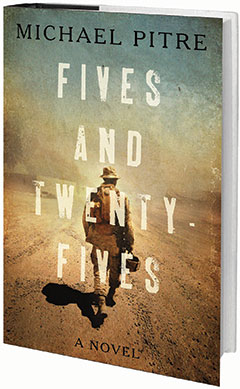 In Fives and Twenty-Fives, our reviewer wrote that Michael Pitre limns "the quiet pathos of war, its aftermath... and the inability of a tone-deaf society to relate to [our veterans]." His characters--three Iraqi vets--are authentic and mesmerizing; the story "is sometimes difficult to abide, but is also necessary; we are lucky to have such a fine voice as Pitre's to tell it."
In Fives and Twenty-Fives, our reviewer wrote that Michael Pitre limns "the quiet pathos of war, its aftermath... and the inability of a tone-deaf society to relate to [our veterans]." His characters--three Iraqi vets--are authentic and mesmerizing; the story "is sometimes difficult to abide, but is also necessary; we are lucky to have such a fine voice as Pitre's to tell it."


 A professor of English at West Point, Elizabeth D. Samet is the author of Soldier's Heart: Reading Literature Through Peace and War at West Point, which was named one of the 100 Notable Books of 2007 by the New York Times. Her essays and reviews have been published in the New York Times Book Review and the New Republic. Her most recent book, No Man's Land: Preparing for War and Peace in Post-9/11 America (reviewed below) is, in part, an attempt to grapple with the mythologies that have spread since 9/11 and reveal the actual experience of soldiers on the ground. [Editor's note: The opinions Samet expresses in this interview are her own and do not necessarily reflect those of the U.S. Military Academy, the Department of the Army, or the Department of Defense.]
A professor of English at West Point, Elizabeth D. Samet is the author of Soldier's Heart: Reading Literature Through Peace and War at West Point, which was named one of the 100 Notable Books of 2007 by the New York Times. Her essays and reviews have been published in the New York Times Book Review and the New Republic. Her most recent book, No Man's Land: Preparing for War and Peace in Post-9/11 America (reviewed below) is, in part, an attempt to grapple with the mythologies that have spread since 9/11 and reveal the actual experience of soldiers on the ground. [Editor's note: The opinions Samet expresses in this interview are her own and do not necessarily reflect those of the U.S. Military Academy, the Department of the Army, or the Department of Defense.] One of the book's underlying themes is the United States' poor care of veterans. Is sentimentality part of the problem? What needs to change?
One of the book's underlying themes is the United States' poor care of veterans. Is sentimentality part of the problem? What needs to change?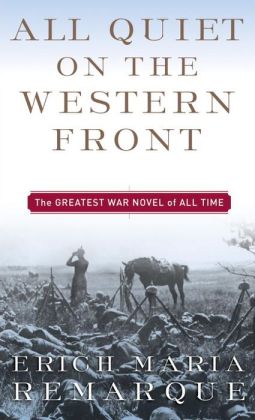 Today it's appropriate to remember a classic war novel, whose title refers to the last day of World War I, originally commemorated in the U.S. as Armistice Day, and now Veterans Day. Published in 1929, All Quiet on the Western Front by Erich Maria Remarque, translated by Arthur Wesley Wheen (Ballantine), tells the story of Paul Bäumer, who enthusiastically enlists with classmates in the German Army shortly after the outbreak of war 100 years ago and is sent to the front line in France. In plain, straight-forward prose, Remarque details the day-to-day routines of Bäumer and his comrades, whose lives quickly become brutal and hellish as they try to survive in the trenches. This is a timely reminder of the horrors of war, the frequent pointlessness of war and war's terrible effects on soldiers.
Today it's appropriate to remember a classic war novel, whose title refers to the last day of World War I, originally commemorated in the U.S. as Armistice Day, and now Veterans Day. Published in 1929, All Quiet on the Western Front by Erich Maria Remarque, translated by Arthur Wesley Wheen (Ballantine), tells the story of Paul Bäumer, who enthusiastically enlists with classmates in the German Army shortly after the outbreak of war 100 years ago and is sent to the front line in France. In plain, straight-forward prose, Remarque details the day-to-day routines of Bäumer and his comrades, whose lives quickly become brutal and hellish as they try to survive in the trenches. This is a timely reminder of the horrors of war, the frequent pointlessness of war and war's terrible effects on soldiers.